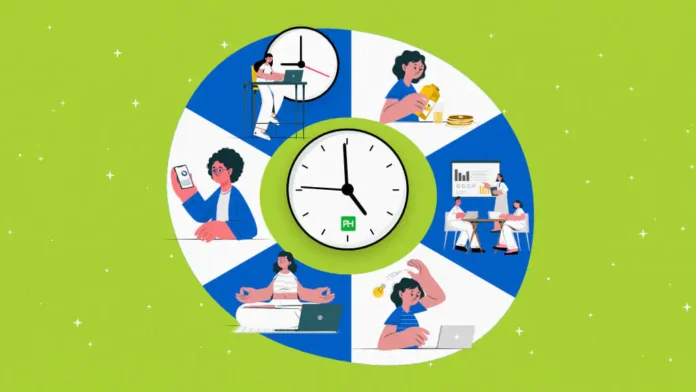In today’s fast-paced world, working longer hours is often mistaken for working effectively. But research in neuroscience, psychology, and organizational behavior consistently shows that working smarter — not harder — is the real key to sustainable productivity. By aligning work habits with how the brain functions best, individuals can achieve more in less time with less stress. Here are 10 science-backed habits that can transform your workday.

1. Prioritize Deep Work Over Busy Work
Cal Newport’s research on deep work suggests that intense, distraction-free concentration produces better results in less time. Block at least 1–2 hours daily for undisturbed focus on cognitively demanding tasks. Turn off notifications, silence your phone, and set boundaries during these sessions.
2. Follow the 90-Minute Work Cycle
Studies from sleep researcher Nathaniel Kleitman show that our bodies move through ultradian rhythms — natural energy cycles — every 90 minutes. After 90 minutes of focused work, take a 10–15 minute break to restore mental energy. This approach improves alertness and reduces burnout.
3. Use the Two-Minute Rule
Popularized by productivity expert David Allen, the two-minute rule says: if something takes two minutes or less to complete, do it immediately. This reduces task accumulation and decision fatigue while maintaining momentum.
4. Apply the Pareto Principle (80/20 Rule)
The Pareto Principle states that 80% of results come from 20% of efforts. Identify the small set of high-impact tasks that drive most of your progress and focus on those. This forces prioritization and eliminates time spent on low-value activities.
5. Avoid Multitasking
According to research from Stanford University, multitasking reduces efficiency and IQ temporarily. The brain is not wired to switch tasks rapidly. Instead, batch similar tasks together (emails, calls, admin) and do them sequentially to improve performance and reduce mental clutter.
6. Leverage the Zeigarnik Effect for Motivation
The Zeigarnik Effect shows that the brain remembers incomplete tasks more than completed ones. Starting a task — even if for a few minutes — creates a mental pull to return and finish it. This technique can be useful to overcome procrastination.
7. Set SMART Goals and Daily Intentions
Scientific studies show that Specific, Measurable, Achievable, Relevant, and Time-bound (SMART) goals improve clarity and motivation. Begin each day by listing 1–3 priority goals to maintain a sense of direction and accomplishment.
8. Use Visual Management Tools
The human brain processes visuals 60,000 times faster than text. Tools like Kanban boards, color-coded calendars, and mind maps help you manage workflows, spot bottlenecks, and maintain focus on what matters. Visual cues also reduce cognitive overload.
9. Incorporate Active Breaks
Short, active breaks (e.g., stretching, walking, or light exercise) have been shown to improve cognitive function, mood, and problem-solving ability. Even 5 minutes of movement between tasks can refresh your brain and boost creativity.
10. Sleep and Hydration: The Hidden Productivity Engines
Cognitive neuroscientists agree that adequate sleep (7–8 hours) and hydration are non-negotiable for mental clarity, decision-making, and memory retention. Dehydration by even 1–2% can impair focus, while sleep deprivation severely impacts attention and emotional regulation.
Working smarter involves aligning with how the human brain naturally functions, not pushing harder against its limits. By adopting these science-backed habits, professionals can optimize their time, reduce stress, and unlock sustainable productivity — one smarter choice at a time.




